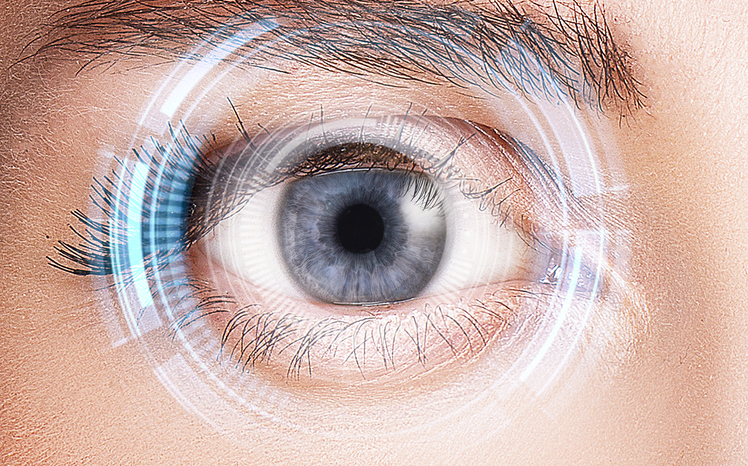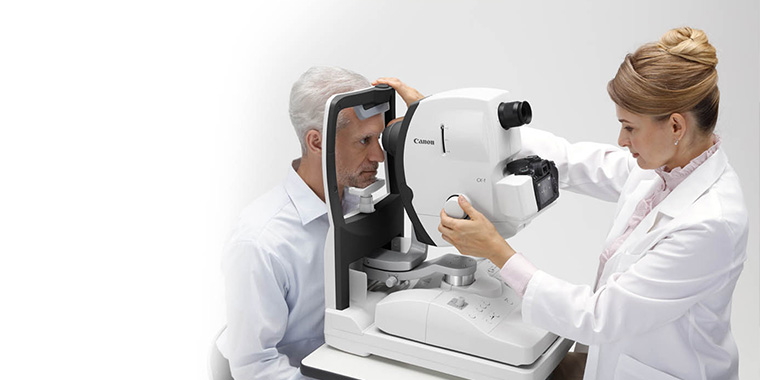Neurologist in Andalusia: Advanced Mind Health Solutions at Our Clinic
Neurologist in Andalusia: Advanced Mind Health Solutions at Our Clinic
Blog Article
Is Refractive Surgical Treatment Right for You? Aspects to Take Into Consideration for Better Eyecare
In the world of eye care, the choice to undertake refractive surgical treatment is a substantial one that demands thoughtful consideration. From the complexities of one's eye health and wellness to the ins and outs of individual expectations and day-to-day habits, each element holds relevance in the broader landscape of refractive surgical treatment candidateship.
Eye Health Examination
When thinking about refractive surgery, a comprehensive eye health assessment is important to analyze the suitability of the procedure for every individual. eye doctors in andalusia. This evaluation entails a collection of examinations and tests conducted by an eye care specialist to identify the general health of the eyes, the presence of any type of hidden problems, and the stability of the refractive mistake
During the analysis, different variables are thought about, such as the patient's clinical history, existing eye prescription, corneal thickness, student size, and tear film top quality. These evaluations aid to determine any kind of contraindications to refractive surgical treatment, such as corneal abnormalities, cataracts, or without treatment eye infections. Additionally, the examination helps to handle patient expectations pertaining to the potential results of the surgery based on their one-of-a-kind eye characteristics.
Inevitably, the eye wellness evaluation is necessary in making sure the safety and security and performance of refractive surgery, as it gives valuable insights into the individual's eye health status and assists figure out one of the most appropriate therapy choices for attaining optimum aesthetic results. (eye doctors in andalusia)
Lifestyle Assessment
A thorough way of living assessment is indispensable in identifying the viability of refractive surgical treatment for a person's visual improvement needs. Way of living elements such as line of work, hobbies, and day-to-day activities play a vital role in the decision-making process pertaining to refractive surgical treatment.
Furthermore, way of life behaviors such as sports involvement, exterior activities, or perhaps skin care routines can influence the recovery process and total success of refractive surgery. For instance, people that take part in get in touch with sporting activities might need to take additional preventative measures to protect their eyes throughout the healing period. Additionally, people with considerable sun direct exposure might require extra post-operative treatment to prevent problems. By performing a comprehensive way of life evaluation, eye care experts can tailor their suggestions and treatment plans to satisfy the special requirements of each individual, eventually causing enhanced visual results and fulfillment.
Expectation Placement

Establishing reasonable assumptions includes detailed pre-operative conversations in between the client and the eye doctor. The doctor needs to transparently connect the possible risks, advantages, and limitations of the treatment (eye center andalusia). People require to understand that while several people accomplish 20/20 vision or far better following refractive surgical treatment, some might still need glasses for certain tasks like analysis or driving at night. Managing these assumptions helps protect against disappointment and discontentment post-surgery, resulting in a more find out favorable overall experience for the individual.
Risk Analysis

Variables that may boost the risk of issues consist of age, certain clinical problems like autoimmune conditions, unsteady vision prescription, thin corneas, and unrealistic patient assumptions. Additionally, choosing a competent and knowledgeable cosmetic surgeon, following pre and post-operative treatment instructions diligently, and disclosing any appropriate clinical history can help alleviate dangers.
To reduce the probability check my reference of difficulties, eye doctors conduct detailed pre-operative analyses to determine any type of contraindications to surgery. They also review the possible threats and advantages with clients during the assessment process. By taking part in open interaction and shared decision-making, both the person and the eye doctor can interact to establish if refractive surgical treatment is the best option based on private danger profiles and desired outcomes.
Assessment Significance
Thinking about the vital function of informed decision-making in assessing risks and possible difficulties in refractive surgical procedure, the appointment procedure holds considerable significance in guiding patients in the direction of ideal outcomes. Throughout the appointment, the eye doctor assesses the patient's eye wellness, refractive mistakes, and overall viability for surgical treatment. This initial analysis is vital in figuring out the most ideal procedure for each individual, taking into consideration variables such as corneal density, pupil dimension, and existing eye conditions.
In addition, the examination functions as a possibility for clients to review their expectations, problems, and any type of questions they may have regarding the surgical procedure. Clear communication in between the cosmetic surgeon and the person is vital to ensure sensible expectations and a detailed understanding of the prospective threats and benefits included.
Additionally, the assessment permits the cosmetic surgeon to describe the different surgical choices available, their particular results, and the post-operative care called for. This comprehensive conversation empowers patients to make educated choices regarding their eye care, causing much better fulfillment and end results post-surgery.
Conclusion
Finally, people taking into consideration refractive surgical procedure should undertake a thorough eye health and wellness evaluation, assess discover here their lifestyle routines, straighten their expectations with prospective end results, examine the involved dangers, and focus on appointments with eye care specialists. These aspects play a vital function in identifying the viability of refractive surgical treatment for each person, guaranteeing optimal end results and contentment with the treatment.
Individuals taking into consideration refractive surgical treatment frequently have high assumptions regarding the results, anticipating perfect vision without the need for glasses or call lenses. While refractive surgery can substantially enhance vision and minimize dependence on aesthetic aids, it is critical for individuals to recognize that results may vary based on individual elements such as the level of refractive mistake, corneal density, and overall eye health and wellness.
By involving in open communication and shared decision-making, both the eye doctor and the client can work together to figure out if refractive surgery is the appropriate selection based on private risk profiles and preferred outcomes.
Taking into consideration the crucial function of informed decision-making in assessing risks and prospective issues in refractive surgery, the appointment process holds substantial relevance in guiding clients towards ideal end results. Throughout the appointment, the eye doctor reviews the individual's eye health, refractive errors, and overall viability for surgical procedure.
Report this page